- Home
- Vince Flynn
The Last Man Page 10
The Last Man Read online
Page 10
So he slung his Canon EOS 5D Mark II camera around his neck to complete his cover as a freelance photographer and headed for the lobby. He kept the two key cards, one in his backpack and the other in his wallet, in case he needed to return to the hotel, but past experience told him he would not be coming back. In fact it was extremely likely he would be making a hasty exit from the country. He smiled for all of the digital cameras in the lobby and then asked the doorman for a taxi. The man asked him if he was checking out and he told him no even though it was likely he was doing just that.
The assassin had been to virtually every major city on every continent with the exception of Antarctica. He had a very good grasp of how standards of living fluctuated from one country to another. Even with all of the money that the Americans and their coalition partners had used to build up the city’s infrastructure, Kabul was still basically a hellhole. Garbage was plastered against the curbs of virtually every pothole-strewn street, and if the city owned a street sweeper there was no evidence of it. The relative high altitude and lack of rain helped cover everything with a film of dirt. Beyond that, the city’s inhabitants seemed to embrace throwing their garbage wherever they liked, almost as if it were a national pastime.
The driver was a talkative fellow, which the assassin didn’t like, but things were coming to a head so quickly that there was no time to be picky. Normally he would have changed cabs at least three times, but he was more interested in checking out the location where he had been told to kill Rapp. That was the part that was grating on his nerves more than anything else. He was a professional and was used to picking a time and place of his own choosing. This entire thing was becoming a little too orchestrated.
The office building was a half block off the Kabul River, a muddy morass of refuse that in the late spring and early summer was bursting at the banks from all the snowmelt from the mountains, but in the fall it slowed to a trickle and again revealed that the inhabitants of Kabul thought of the river as a garbage dump. Even though the office was only a few miles from the hotel the drive took nearly fifteen minutes. The lack of traffic lights and the heavy noontime traffic made the going slow. His Arabic was basic enough to find out that the driver spoke English, which made things much easier. After some haggling they agreed on what it would cost to hire him for the next few hours. The assassin directed him to the location where he wanted him to wait and then tore a hundred-dollar bill in half. The driver didn’t like that one bit. After some cursing, the assassin explained to him that he’d get the other half when he came back and a fresh hundred-dollar bill as well. This seemed to calm the man a bit. The two exchanged mobile numbers and then the assassin left the taxi along with the roller bag in the trunk.
He circled the block, snapping photos as he went, but in reality he was taking a digital recording of everything. It was a mixed business-residential district with a good number of two- and three-story buildings. By European standards the place was a dump, but here in Kabul it was considered upper class. Vendors lined both sides of the streets selling everything from the popular vests that most men wore to brightly colored plastic chairs and tables to tea, with a surprisingly varied selection. There were fruit and produce vendors of almost all imaginable kinds. These merchants, the assassin knew, would have their finger on the pulse of this street where they lived six days a week from sunrise to sundown. Anything out of the ordinary and they would seem a bit agitated.
He was careful to not appear to be taking any direct shots of any particular people, as it could make them jumpy. Rather he made it look as if he was taking long-distance shots of faraway objects. The veterinary hospital was near the end of the block with a park next door that was adjacent to the side door of the hospital. The office building he was supposed to take his shot from was across the street and about 80 meters down the block. At first glance the location was perfect.
The assassin took a final casual look around and then entered the building. There really wasn’t a lobby, just a small landing for the stairs that led to the second floor. He did a quick walk-through of the first floor and was alarmed to see that there was no secondary exit. That was reason enough to pull the plug on the assignment, but he had some time to spare, and curiosity drove him to take the steps to the second floor. It took his eyes a moment to adjust to the poor lighting. He walked past the office that was in his instructions and went to the end of the hall, where he was relieved to find a ladder that led to the roof. Going back to the office, he unzipped the fanny pack and slid his right hand around the grip of the Beretta should he need it. The key slid into the lock easily enough.
The assassin stayed behind the doorframe and pushed the door open. The office was a simple fifteen-by-fifteen-foot space with dirty, cracked walls and carpeting that was worn in the places where the previous tenant’s desk had sat. Underneath the window someone had set up a folding table and chair. On top of the table sat a rectangular tan nylon bag that he had seen many times. He closed and locked the door and approached the bag as if it might bite him. After hesitating for a moment, he retrieved a pair of latex gloves from his fanny pack and snapped them on each hand. He ran the zipper all the way along the perimeter and carefully folded the top over to reveal a shiny new Heckler & Koch HK 416. A soft whistle of admiration rolled past the assassin’s lips. The H&K 416 was the most advanced M-4 carbine available. The weapon was outfitted with the top-of-the-line optics that in the hands of the assassin would make it lethal out to six hundred meters. At eighty meters a headshot would be a snap. The short-stroke, gas-piston operating system delivered the round with incredible accuracy, and more important, the weapon rarely jammed.
He lifted the weapon from its case and turned it over in his hands. The suppressor was tucked in a separate compartment. The carbine was a fine piece of craftsmanship. His thumb pressed the magazine release and he inspected the rounds. As per his request the magazine was loaded with Remington’s revolutionary 300BLK subsonic round, which had significantly more punch than the standard 5.56. He seated the magazine back into the weapon, turned on the EOTech sight, and brought the weapon up to his right shoulder. Standing five feet back from the window he sighted in the front door of the clinic. With both eyes open, the red dot balanced perfectly on the door handle. At this short distance there would be no need for a tripod or shooting stick. At this distance he wouldn’t need the 3x magnifier, but he flipped it into place nonetheless. He wanted to see if there was anyone out there watching him. He started to his left and searched for a likely sniper position.
After five minutes of carefully probing he was left with no evidence that he was being watched, but he knew the absence of such evidence meant nothing. If the person was good, it was a simple thing to conceal a position that was one thousand meters away. After placing the H&K 416 back in the case he picked up a manila envelope and dumped the contents on the table. There was a handmade map that showed the location of the rooftop access and a line of exfiltration across several rooftops to a ladder that would lead to the street. He set it off to the side and picked up a photo of Rapp. This caused him to frown. His employer had already provided the same photo via text. He grabbed his lighter and burned both map and photo, dropping them to the floor and stamping them into the carpet when they were nothing more than a few fragments.
He grabbed his digital camera and began going through the footage he’d taken. He was roughly three minutes in and had picked out two interesting individuals who seemed to pay him a little too much attention. They were also conveniently located at each end of the block.
The assassin was about to explore this further when a text arrived informing him that Mr. Rapp was on the way. Estimated time of arrival was six minutes. He felt his heart begin to quicken—something that hadn’t happened in a long time. The assassin took in several deep breaths and then shook his arms loose to try to let out some of the tension. Why put two watchers on the street if they already had eyes on the target? The answer was unfortunately obvious. They were not here to ke
ep an eye on Rapp. They were standing at their posts doing one of two things. The first was simple enough. His success or failure would be reported in near real time to his employer. No real harm, but another sign that his employer had some serious assets at his disposal. The second possibility was more ominous—his employer planned on killing him as soon as Rapp had been taken care of.
CHAPTER 14
THE silver Toyota 4Runner hadn’t been washed in over a month. The windshield had a divot from a rock and a crack that crawled its way along the bottom, dying in the right corner. The front bumper had seen some use but not as much as the rear. Both sides had enough scrapes and dents so that the vehicle fit right in on the wild streets of Kabul. This all made Rapp happy, as he greatly preferred anonymity to large steel-plated vehicles that screamed U.S.A.
Rapp was in back looking out the dirty rear-passenger window at nothing in particular. His mind was revisiting what he’d seen at the safe house that morning. Sydney Hayek didn’t think she’d get the preliminary ballistics back for another twenty-four hours, and Rapp was already starting to think he didn’t need them. The way the bodies were strewn about the house, the big .45 caliber hole in the back of the one guy’s head, and the security system being defeated without the slightest warning, it all looked bad. Throw the dog on top of that and he cringed at the possible outcomes. The real question was why?
Rickman was a strange bird, there was no doubt about that, but it was a big jump from being a little different to being a traitor. Rapp knew he was getting a bit ahead of himself, though. The dog could have been an honest mistake. Hubbard could have easily misheard Rickman or just assumed that he’d put the dog down at the local clinic, but when Rapp got these kinds of feelings, more often than not they turned out to be right. The difference this time around was that he was hoping he was wrong.
Maslick was driving and big Reavers riding shotgun with his bushy dark beard, a pair of wraparound Oakleys, and his standard fuck-off expression on his face. Like a pit bull, he was not the friendliest creature when it came to new faces, but immensely loyal to those whom he knew. Coleman had been his CO when the two men were SEALs and then after they had continued to work together as private contractors for the CIA. Maslick was former Delta Force and had been attached to Rapp’s team on and off for three years. Both men had a cool detachment that had been honed by killing enemies who had desperately tried to kill them first. They never looked nervous, but they never stopped surveying the landscape for threats.
Rapp pulled out his phone and checked to see if there were any new emails from Langley that might shed some light on Rickman’s location. Kennedy had told him that Rickman was the top priority for the National Security Agency until the president said otherwise. Every conversation, email, tweet, and text within a thousand miles was being translated and crunched by the NSA’s Cray supercomputers. They were bound to pick up something. Rapp just hoped it was enough for him to get a solid lead.
“So are you going to tell me why you’ve got a hard-on for some vet?”
Rapp looked up from his phone and wondered how much he should share with Coleman. It wasn’t that he didn’t trust him. Next to Kennedy and maybe Hurley there was no one he trusted more, it was just that a gut feeling like this could poison what they were trying to do.
Coleman waited a few seconds for Rapp to answer and then said, “You’re not the only one who thinks this thing doesn’t smell right.”
Rapp made no attempt to hide his surprise. “What are you talking about?”
“Please . . . I’ve been in enough shootouts to know how things go down. You’re hung up on the bodyguard . . . the one missing half his face.”
Rapp confirmed his suspicions with a simple nod.
“It jumped out at me, too. The rest were all shot with nine millimeters and then there’s this guy who was obviously tapped by a .45 and we both know Rick loves his big Kimber.”
“And the guy was shot in the back of the head while he was moving down the hall away from Rick’s office and bedroom,” Rapp added.
“I noticed the same thing, but then I started thinking, what if Rick found out this bodyguard had set him up? Maybe he had some suspicions and then the guy went and took the security system off-line. Hell, Rick could have been sleeping. He hears the commotion downstairs and as a last act of desperation, he shoots this guy in the back of the head.”
Rapp turned Coleman’s scenario over in his mind, hoping that it would explain away his fears. “I hadn’t thought of that.” Rapp tried to imagine Rickman being roused from his bed and springing into action. Joe Rickman was anything but a foot soldier. Officially, he was a mid-level case officer in the CIA’s Clandestine Service. Unofficially, he’d spent the last eight years running the Clandestine Service’s black ops in the Islamic Republic. He didn’t show up on the flow charts that were given to Congress. There was no important title before his name. He wasn’t a station chief or a deputy director. He was a black hole that happened to be a repository of a mountain of dirty, nasty secrets. So far no one knew the exact number, but the best guess was that more than a quarter of a billion dollars in cash had passed through Rickman’s hands while he’d played this dangerous game. There was no oversight, no accounting, no one back in Washington asking for receipts and riding his ass to fill out expense forms. The suits didn’t want to know the details of what Rickman was up to, and because of his big brain he was able to keep it all straight without writing anything down. He continued to pass his twice-a-year lie detector test, and that was good enough for the people in charge. Rapp had worried for some time that it was a recipe for disaster.
Yes, Rick loved his Kimber, but there could be an absolute chasm between spending time on the range in a controlled environment and getting yanked from a deep sleep and not shooting yourself in the foot. The more Rapp contemplated the mess, the more he thought the biggest red flag was the security system. If Coleman was right, and the one bodyguard had been the inside man, he would need to see proof that this guy had the ability to defeat an extremely complicated security system. Rapp was no dummy, and he’d been stymied plenty of times by the technological aspect of his job. That was why he normally traveled with experts like Marcus Dumond, who was a hacker extraordinaire.
“Rick was no shooter,” Rapp said. “I’m not saying it’s not possible, but I have a hard time seeing Rick plugging a guy in the back of the head in the middle of the night. Especially one of these hardened guards we chose for him.”
“We’ll find out. If the bodyguard was bad, there’ll be something. Now, what about this vet?”
Rapp sighed. “Rick had a dog.”
“I remember. Rottweiler . . . slobbered all over the place. Thing never left his side . . . he treated it like it was his kid.” Coleman shook his head with disapproval. “No way to train a dog like that.”
“I asked Hub about the dog. He said it’d been sick. Only six years old or something like that. Rick brought it to the vet down in J-bad and had it put down. I told Hub to talk to the vet and make sure the dog was put down.”
“The vet didn’t put it down.”
“Nope. In fact he couldn’t figure out what was wrong with it so he told Rick to bring it to the big-city vet up here in Kabul.”
Coleman looked skeptical. “Sounds like a bit of a reach.”
Maslick announced that they were two blocks away from the clinic.
Rapp looked out a window as they passed a green Ford Ranger pickup that was the local police department’s main form of transportation. Four men were sitting in back decked out in full combat gear. More to himself than Coleman, he said, “Yeah . . . well, we’re about to find out.”
CHAPTER 15
THE office window consisted of two laterally sliding pieces of glass with an aluminum frame. There was no screen and the channel was filled with so much debris that it was difficult to open the window. It was neither a warm nor a cold October day, and the way people smoked in this city a cracked window would not stand out as a poss
ible threat, even to someone as aware as Rapp. The assassin decided four inches would give him enough range to cover the twenty or so feet in front of the clinic’s main door. He checked his sight line once again and then returned to the question that was chewing on his nerves.
It was possible that his employer was cheap and simply wanted to save himself $1.5 million, but considering the lengths that he’d gone to that was unlikely. The more plausible explanation was that this control freak on the other end of the text messages and envelopes didn’t like loose ends, and the assassin was about to become a loose end. He prided himself on his instincts, and when a hunter realizes he might soon become the hunted it is a feeling that is impossible to ignore. His mind was speeding to calculate his avenues of escape, when a truly frightening thought hit him square in the cerebral cortex. What if his employer had somehow discovered his past with Rapp? Surely there were a handful of people in the U.S. government who knew the details of that catastrophe. The scales in his mind that were trying to weigh his employer’s honesty against the possibility that he was being set up suddenly jerked in favor of the latter as if an anvil had been dropped on that side. There was no longer any doubt in the assassin’s mind. He was being set up.
The front door did not seem like a great option, as both ends of the street were being watched, but the roof gave him even greater concern. It was obviously the avenue of escape that the employer preferred him to take, which likely meant there was a trap waiting for him. He looked down at the phone that had been his link to the employer and had the ominous feeling that it was being used to track his every move. Even worse, the thing could have a small bomb in it. Not enough to kill him unless it was placed next to his ear. Intelligence agencies had used cell phones to assassinate enemies for more than a decade. He decided he wouldn’t be answering any calls.

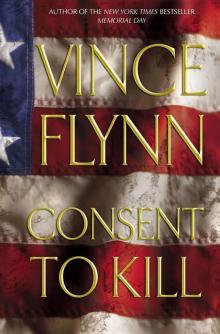 Consent to Kill
Consent to Kill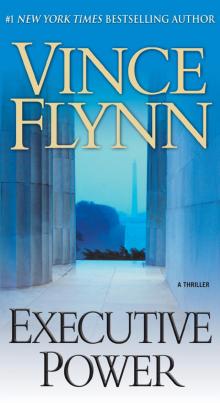 Executive Power
Executive Power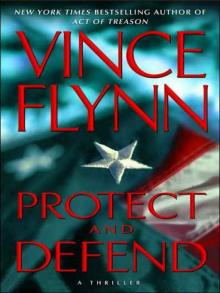 Protect and Defend
Protect and Defend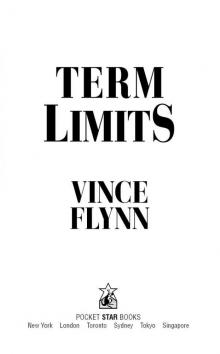 Term Limits
Term Limits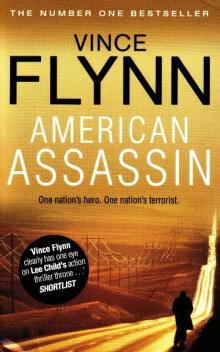 American Assassin
American Assassin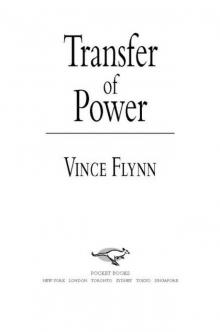 Transfer of Power
Transfer of Power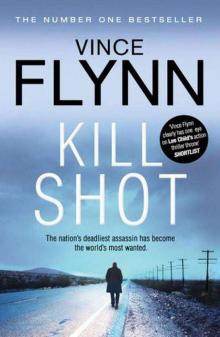 Kill Shot
Kill Shot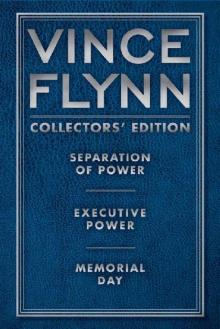 Vince Flynn Collectors' Edition 2
Vince Flynn Collectors' Edition 2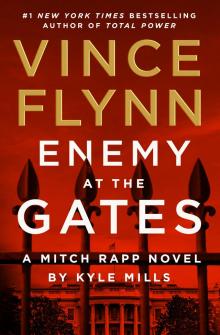 Enemy at the Gates
Enemy at the Gates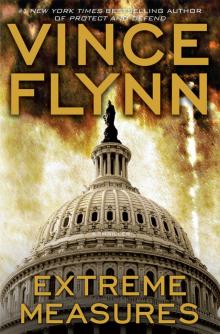 Extreme Measures
Extreme Measures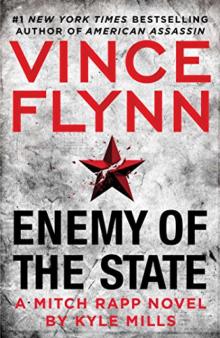 Enemy of the State
Enemy of the State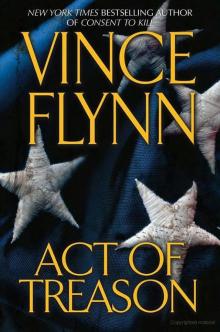 Act of Treason
Act of Treason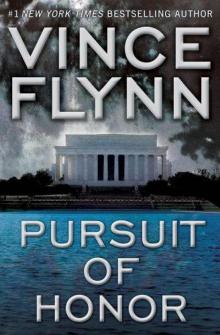 Pursuit of Honor
Pursuit of Honor The Survivor
The Survivor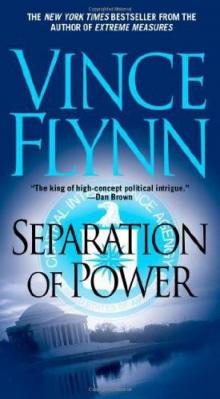 Separation of Power
Separation of Power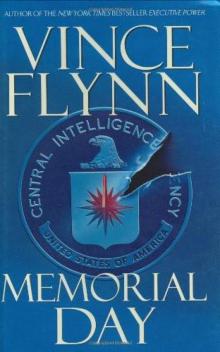 Memorial Day
Memorial Day The Last Man
The Last Man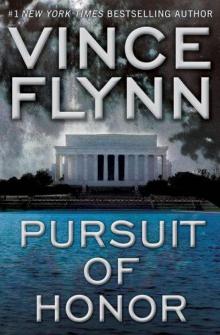 Pursuit of Honor_A Thriller
Pursuit of Honor_A Thriller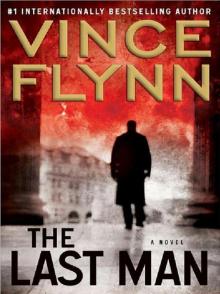 Mitch Rapp 13 - The Last Man
Mitch Rapp 13 - The Last Man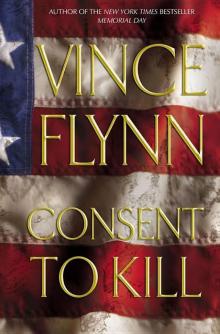 Consent to Kill:
Consent to Kill: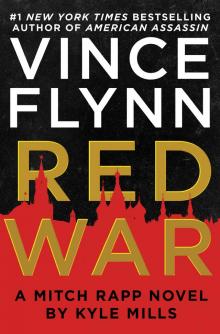 Red War
Red War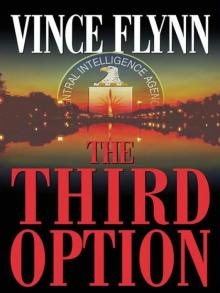 Mitch Rapp 02 - The Third Option
Mitch Rapp 02 - The Third Option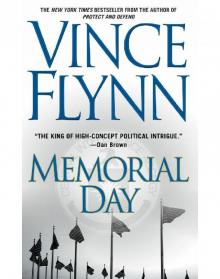 Mitch Rapp 05 - Memorial Day
Mitch Rapp 05 - Memorial Day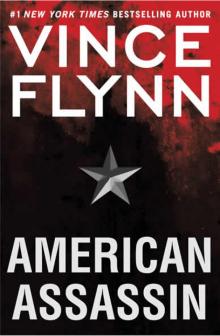 Mitch Rapp 11 - American Assassin
Mitch Rapp 11 - American Assassin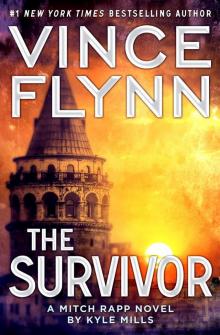 Mitch Rapp 14 - The Survivor
Mitch Rapp 14 - The Survivor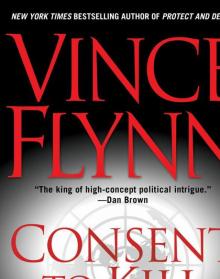 Mitch Rapp 06 - Consent to Kill
Mitch Rapp 06 - Consent to Kill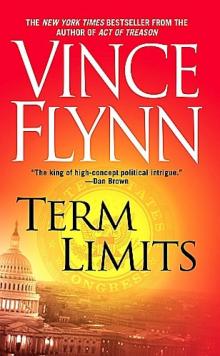 Term Limits mr-1
Term Limits mr-1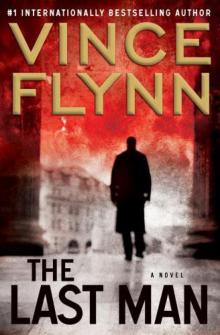 The Last Man mr-13
The Last Man mr-13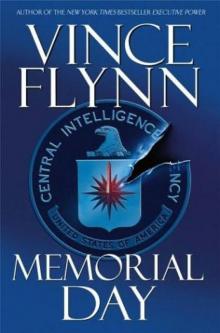 Memorial Day mr-5
Memorial Day mr-5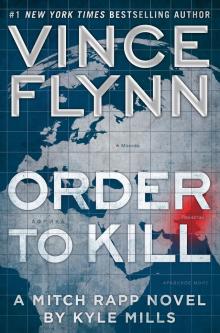 Order to Kill
Order to Kill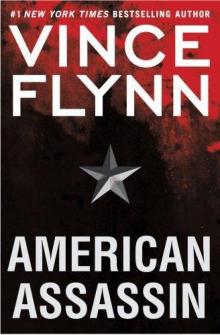 American Assassin: A Thriller
American Assassin: A Thriller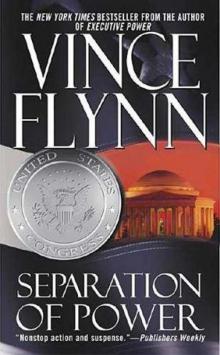 Separation of Power mr-3
Separation of Power mr-3